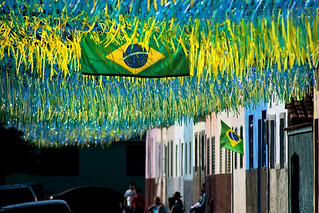Article first posted on Footrace, a website where you compete to predict the right score and connect with other football fans around the world.
If you put Boris Johnson, Gianni Infantino (President of FIFA), Richarlison, Richard Masters (Premier League CEO), and Alejandro Dominguez (President of CONMEBOL) in a room together, you will find some awkward stares and wry smiles being exchanged. The Premier League recently announced that clubs would block players from travelling to UK red-list countries (which means players would have to quarantine for 10 days in a hotel alone upon return) for the upcoming World Cup Qualifiers. All South American countries are red-listed countries. This caused Gianni Infantino to send a letter to the Premier League and English football officials ‘calling on a show of solidarity from every member association, every league, and every club’ to allow exemption for players to travel for World Cup qualifiers. The government refused the request. It’s a power game between hopeless governing bodies.
Aston Villa have backtracked on the agreement, allowing their Argentinian players Martínez and Buendía to travel. Those selected to play for Brazil are stuck in Liverpool (Roberto Firmino, Alisson, Fabinho, and Richarlison), Manchester (Ederson, Gabriel Jesus, and Fred), Leeds (Raphinha), and London (Thiago Silva). The Chilean football federation has asked FIFA to punish Watford and Blackburn for not releasing Francisco Sierralta and Benjamin Bereton. Brazil are assessing their options for the meantime.
Boris Johnson and the England FA have potentially compromised the success of their 2030 World Cup bid. FIFA deceived themselves into a false sense of authority. And South American football’s export successes have been undermined by Eurocentric power plays. Brazil have recalled (the un-incredible) Hulk to the national squad ahead of matches against Chile, Argentina, and Peru.
Brazil comfortably lead the Qualifiers table by 6 points. Although there’s little at stake for the Seleção, and given players would have to quarantine in low-quality hotels with no spas upon return, it’s not the biggest deal in the world. However, careers are short; players justifiably want to play in those yellow shirts as many times as possible in these years. The current climate is a sign of Europe’s usurpation of power in all matters football, and the absence of Brazilian football’s power in world football politics.
Many of the Brazilian players of the past would not have had to deal with having to sit through long-haul flights from Europe watching films to pass the time. Yes, there is some pride in seeing Brazilian players add enticing flavours to European football, and Asian football, and football in the Faroe Islands. But there’s also a more palpable feeling of saudades, of longing for the days where the Brazilian league had some international pedigree, and also of some resignation in seeing Brazil’s best clubs, like Flamengo, be made up of veterans and other washed-up players who had played in Europe for years before, like Filipe Luís and Kenedy, rather than the best.
One solution some Brazilian clubs are considering involves creating a “breakaway super league” with significant investments from an American investment company. This phrase is a traumatic one for English readers, but the nature of it is to emulate the formation of the Premier League in 1992. Kudos to the conflict between Brazil’s football federation and the Premier League. So much for keeping Brazil’s elite footballers at home, fans in the country may not like the cultural degradation of the league in practice so much. Other constructive solutions are possible.
The tensions between South American football and governing bodies in Europe puts into clear perspective the disadvantages of the exportation of young Brazilian talents to other continents. The weakness and vulnerability of Brazilian footballers’ power in the negotiating rooms is just as clear to see. The Brazilian football federation (CBF) or CONMEBOL must show their own ‘show of solidarity’ for the continent’s own football, especially in a situation where there is an incentive to respond. One regulation which could go some way in improving the quality of the country’s football is increasing the age at which players move to Europe; Neymar left Santos at the age of 21, rather than 18, ready to perform at a world-class level. Yet, instead of phoenix-rising from the burning wildfires that is Brazilian football in its current state, you can expect the continent’s footballing bodies to be unreliable, corrupt, pragmatic, and also let super-reliable FIFA do some of the dirty work on their behalf.
Image credits Antonio Thomás Koenigkam Oliveira via Flickr
